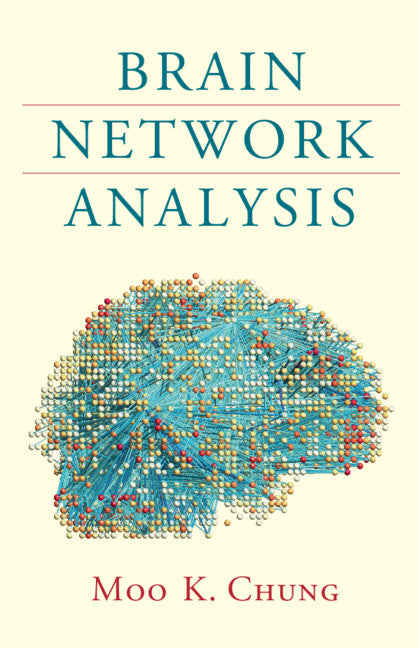Freshly Printed - allow 4 days lead
Couldn't load pickup availability
Brain Network Analysis
This coherent mathematical and statistical approach aimed at graduate students incorporates regression and topology as well as graph theory.
Moo K. Chung (Author)
9781107184862, Cambridge University Press
Hardback, published 27 June 2019
338 pages, 41 colour illus.
23.5 x 15.6 x 2.1 cm, 0.64 kg
'This book is a must-read for students and researchers in brain network analysis. It is unique across many fronts. First, it weaves together the important background material in statistics, computational mathematics and algebraic topology. Second, it accomplishes the dual role of a research monograph and a textbook reference. The author, an expert in this field, conveys his enthusiasm for brain network analysis and lays down the most essential mathematical and statistical foundations for future advances.' Hernando Ombao, King Abdullah University of Science and Technology, Saudi Arabia
This tutorial reference serves as a coherent overview of various statistical and mathematical approaches used in brain network analysis, where modeling the complex structures and functions of the human brain often poses many unique computational and statistical challenges. This book fills a gap as a textbook for graduate students while simultaneously articulating important and technically challenging topics. Whereas most available books are graph theory-centric, this text introduces techniques arising from graph theory and expands to include other different models in its discussion on network science, regression, and algebraic topology. Links are included to the sample data and codes used in generating the book's results and figures, helping to empower methodological understanding in a manner immediately usable to both researchers and students.
1. Statistical preliminary
2. Brain network nodes and edges
3. Graph theory
4. Correlation networks
5. Big brain network data
6. Network simulations
7. Persistent homology
8. Diffusion on graphs
9. Sparse networks
10. Brain network distances
11. Combinatorial inference for networks
12. Series expansion of connectivity matrices
13. Dynamic network models.
Subject Areas: Neural networks & fuzzy systems [UYQN], Neurosciences [PSAN], Probability & statistics [PBT], Psychiatry [MMH], Neurology & clinical neurophysiology [MJN], Physiological & neuro-psychology, biopsychology [JMM]


